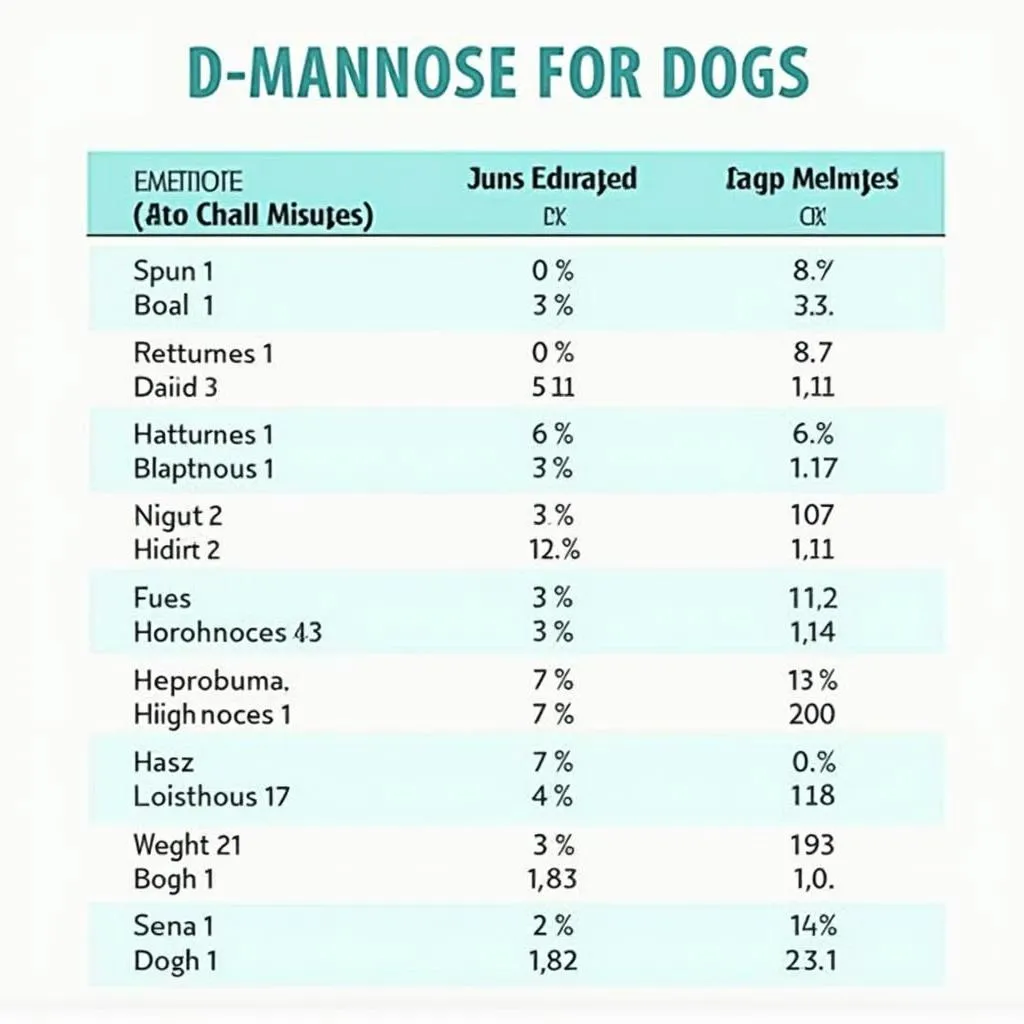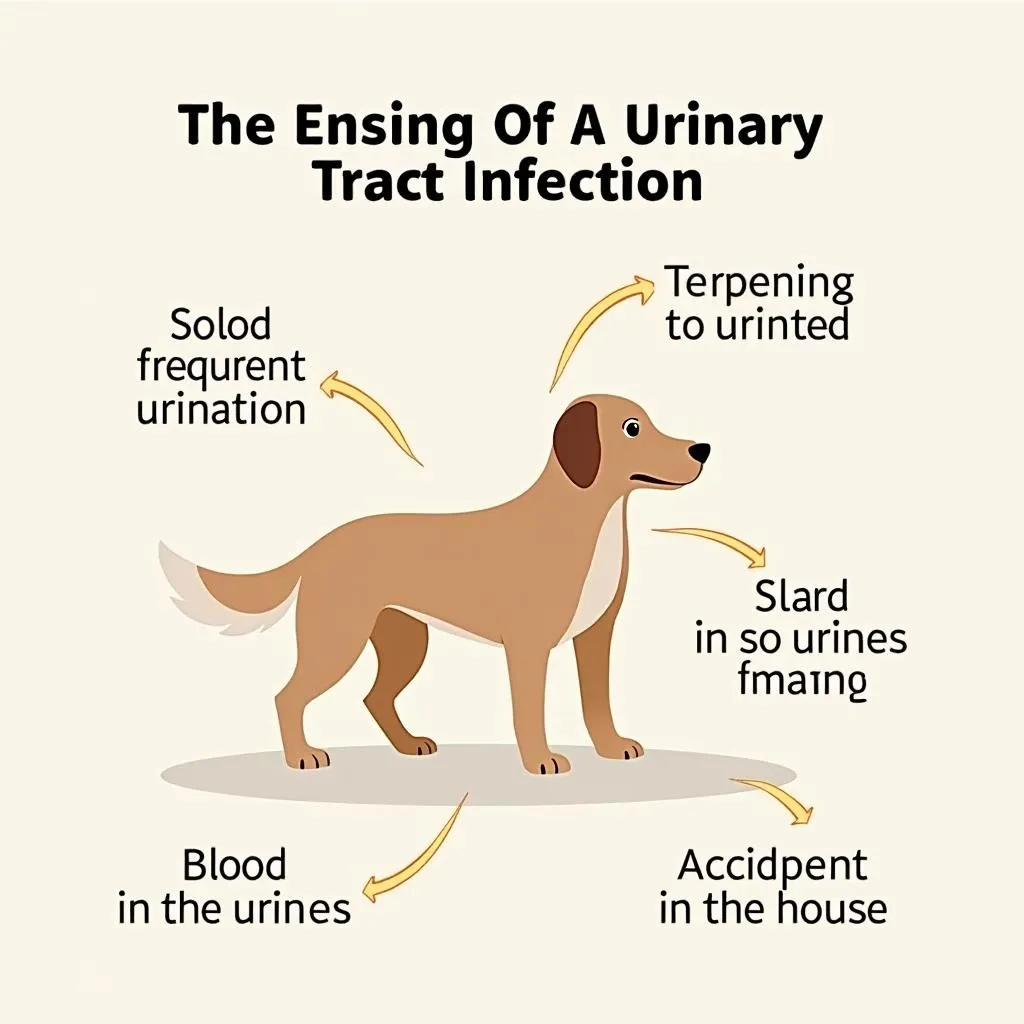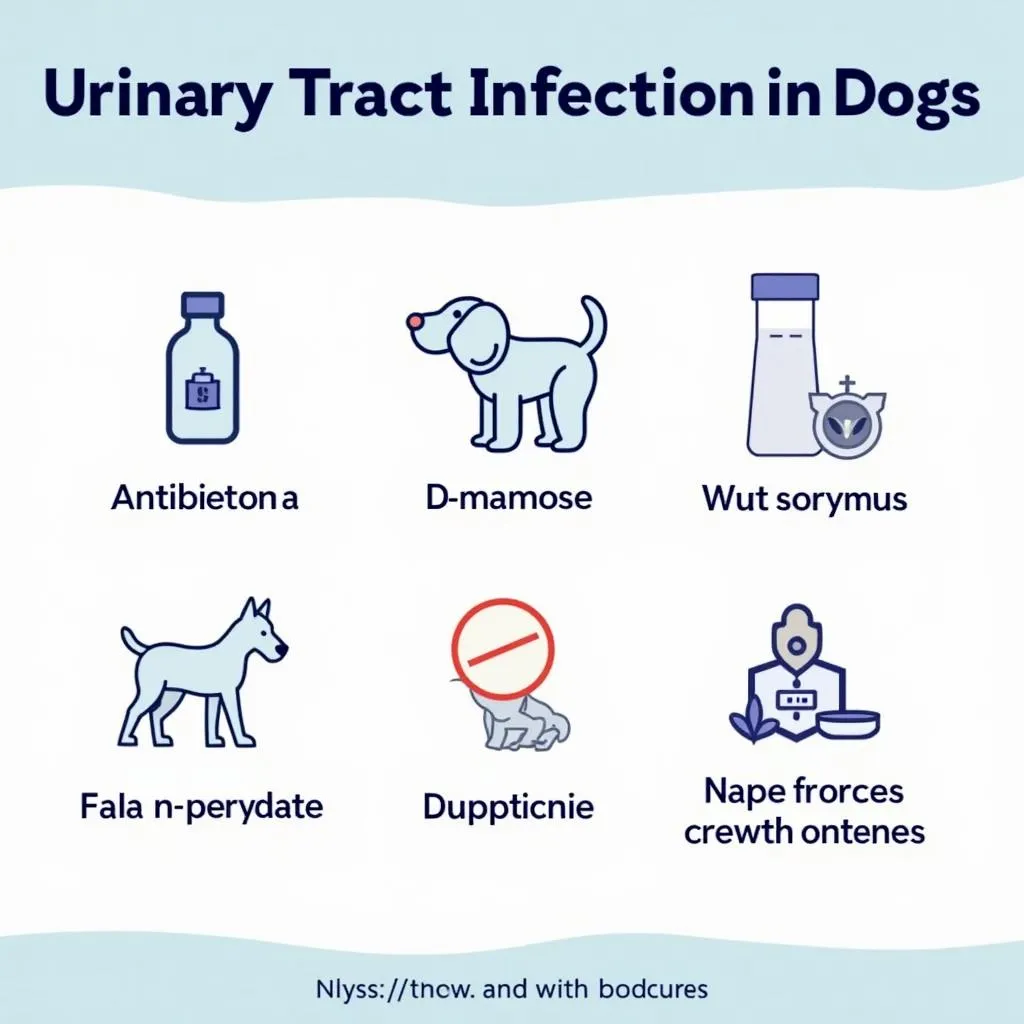“What’s good for the goose is good for the gander” – this old adage, while often true, isn’t always the case when it comes to our furry friends. What works for us humans may not be safe or effective for our beloved pets. Today we’re diving into the world of D-mannose, a natural sugar that’s gaining popularity for its potential benefits in both humans and dogs. But before you grab that supplement bottle, let’s explore the ins and outs of D-mannose for dogs, including dosage, potential benefits, and important considerations.
Understanding D-Mannose for Dogs
D-mannose is a simple sugar naturally found in fruits like cranberries and blueberries. It works by binding to bacteria, especially E. coli, in the urinary tract, making it harder for these bacteria to stick to the bladder walls and potentially cause infections. This action is known as “flushing out” the urinary tract, similar to how a stream washes away debris.
Potential Benefits of D-Mannose for Dogs
While research on D-mannose in dogs is ongoing, anecdotal evidence suggests potential benefits, including:
- Urinary Tract Health: D-mannose is believed to help prevent and manage urinary tract infections (UTIs) in dogs by preventing the bacteria from adhering to the bladder lining.
- Reduced Urinary Frequency: Some dog owners report a decrease in urinary frequency in their dogs after starting D-mannose supplementation.
D-Mannose Dosage for Dogs
The recommended dosage of D-mannose for dogs varies depending on factors like weight, age, and the severity of the condition. It’s crucial to consult your veterinarian for the correct dosage for your dog.
However, as a general guideline:
- For smaller dogs (under 20 pounds): 125-250 mg per day
- For medium-sized dogs (20-50 pounds): 250-500 mg per day
- For larger dogs (over 50 pounds): 500-1000 mg per day
 D-Mannose Dosage Chart for Dogs
D-Mannose Dosage Chart for Dogs
Important Considerations for D-Mannose Use in Dogs:
- Potential Side Effects: D-mannose is generally considered safe for dogs. However, some dogs may experience mild gastrointestinal upset, such as diarrhea or vomiting, especially when first starting supplementation.
- Interactions with Medications: D-mannose may interact with certain medications. Always consult your veterinarian before giving D-mannose to your dog if they are on any medications.
- Underlying Conditions: D-mannose is not a cure for UTIs. If your dog has recurring UTIs, it’s crucial to address any underlying medical conditions with your veterinarian.
- Dietary Changes: A healthy diet and regular hydration can help support urinary tract health in dogs. Consider increasing your dog’s water intake and providing a balanced diet.
- Supplementation vs. Veterinary Care: D-mannose is a potential supplement, but it should not be considered a replacement for professional veterinary care. If you suspect your dog has a UTI or any other health issue, always seek immediate veterinary attention.
 Symptoms of UTI in Dogs
Symptoms of UTI in Dogs
What Experts Say About D-Mannose for Dogs
Dr. Nguyen Van Minh, a renowned veterinarian in Hanoi, believes that D-mannose is a promising natural supplement for supporting canine urinary tract health. He advises pet owners to consult with a veterinarian before introducing D-mannose to their dog, especially if they have any pre-existing conditions.
Common Questions About D-Mannose for Dogs
How Long Can I Give My Dog D-Mannose?
The duration of D-mannose supplementation depends on the individual dog and their specific condition. It’s best to consult with your veterinarian to determine the optimal duration for your dog.
Can I Give My Dog D-Mannose as a Preventative Measure?
While more research is needed, some veterinarians recommend D-mannose for dogs prone to UTIs as a preventative measure.
Is D-Mannose Safe for Puppies?
D-mannose is generally considered safe for puppies, but it’s crucial to consult with your veterinarian to determine the appropriate dosage and duration of supplementation.
 Treating Urinary Tract Infections in Dogs
Treating Urinary Tract Infections in Dogs
What to Do if Your Dog Has a UTI
If you suspect your dog has a UTI, it’s essential to contact your veterinarian immediately. They can perform a urine test to confirm the diagnosis and recommend the appropriate treatment, which may include antibiotics, D-mannose, and other supportive measures.
When in doubt, always trust your veterinarian. They’re the best source of information and guidance for your dog’s health.
Remember, the information provided here is for informational purposes only and should not be considered a substitute for professional veterinary advice. Always consult with your veterinarian for the most accurate and personalized guidance for your dog’s health and well-being.
When You Need Assistance:
Don’t hesitate to reach out to our dedicated team at “I Love My Pet”.
- Phone: 0372960696
- Email: [email protected]
- Address: 260 Cầu Giấy, Hà Nội
We have a 24/7 customer support team ready to answer your questions and provide support for all your pet needs.
Leave a Reply
You must be logged in to post a comment.